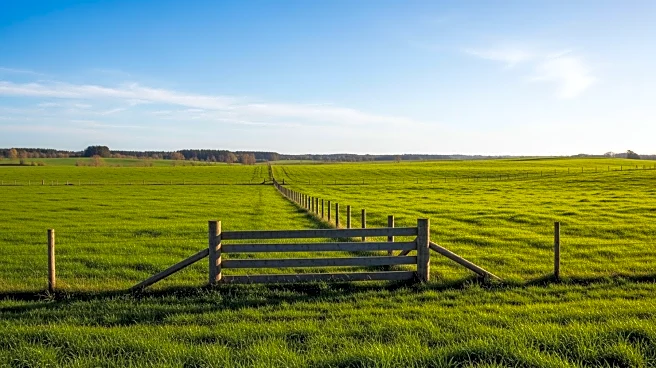What's Happening?
Despite challenges in commodity markets and uncertain farm profitability, agricultural land values in the U.S. have remained stable through mid-2025. Farmers National Company reports that this stability is driven by supply and demand dynamics, with more
buyers than sellers. Interest from both individual and institutional investors is growing, attracted by land's long-term appreciation and annual returns. Midwest farmland values have seen significant increases over the past decade, reinforcing land's appeal as a stable asset. Inventory remains limited, with listings down from previous peaks, as long-term landowners hold onto their properties.
Why It's Important?
The resilience of the agricultural land market is crucial for the U.S. economy, particularly in rural areas where farming is a key industry. Stable land values provide financial security for landowners and attract investment, supporting economic growth. However, farm profitability, influenced by factors like commodity prices and interest rates, will be critical in determining future land values. Geopolitical developments, including trade policies and tariffs, also impact the market, creating uncertainty for U.S. agricultural exports. The stability of land values amidst economic challenges highlights the importance of agriculture as a reliable investment.
What's Next?
Looking ahead, farm profitability will play a significant role in shaping the agricultural land market. The USDA forecasts a decline in net farm income, which could affect purchasing power and investor returns. Geopolitical factors, such as renegotiated trade agreements and tariffs, will continue to influence market dynamics. Those with strong financial positions will be best equipped to capitalize on land purchase opportunities. Farmers National Company anticipates continued demand for real estate and management services as landowners navigate market uncertainties.
Beyond the Headlines
The agricultural land market's stability amidst economic uncertainty underscores the sector's resilience and importance. As geopolitical tensions and economic fluctuations persist, the role of agriculture in providing stable investment opportunities becomes increasingly significant. The market's ability to withstand volatility highlights the strategic value of land ownership and management in the broader economic landscape.
















